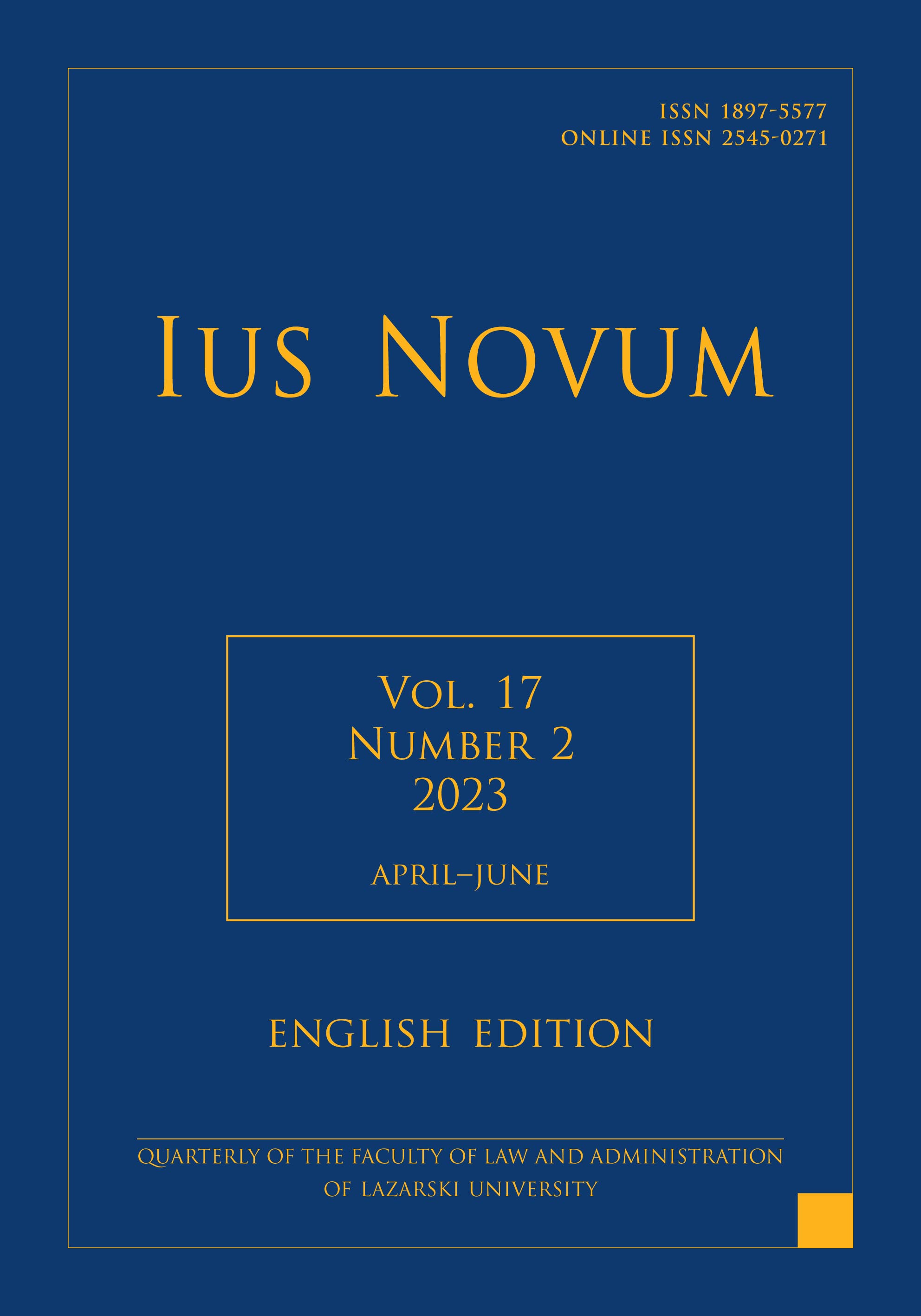Review of the resolutions of the Supreme Court Criminal Chamber concerning substantive criminal law passed in 2022
Review of the resolutions of the Supreme Court Criminal Chamber concerning substantive criminal law passed in 2022
Author(s): Ryszard A. StefańskiSubject(s): Criminal Law
Published by: Oficyna Wydawnicza Uczelni Łazarskiego
Keywords: serving in the state security bodies; statute of limitations; driving license revocation; reporting a crime; suspension of the statute of limitations;
Summary/Abstract: The scholarly and research-focused article aims to analyse resolutions and rulings of the Supreme Court Criminal Chamber concerning substantive criminal law passed in 2022 as a response to the so-called legal questions. The subject of the analysis covers such issues as: the crime of failure to report a crime (Article 240 § 1 of the Criminal Code); suspension of the statute of limitations for criminal offenses due to the COVID-19 pandemic; a student of the Faculty of Public Order of the Academy of Internal Affairs in Szczytno as a person not serving in the state security bodies; and revocation of a driving licence in the event its holder who is a member of a military unit performing tasks outside the country commits an act consisting in driving a motor vehicle under the influence of alcohol (Article 135(1) of the Road Traffic Act). The fundamental objective of this scientific research is to evaluate the legitimacy of this body’s interpretation of the regulations encompassing legal issues referred to the Supreme Court for resolution. The primary research theses aim to demonstrate that the so-called legal questions referred to the Supreme Court play an important role in ensuring the uniformity of common and military courts’ judgements, given that the body’s stance relies on in-depth reasoning. The research findings present an original perspective developing the interpretation found in the analysed resolutions in a creative way. While the research primarily focuses on national aspects, the article holds significant importance for the scientific community. This is due to its detailed dogmatic analysis and substantial theoretical discourse. Moreover, its practical utility is evident as it enriches the Supreme Court’s arguments and addresses circumstances that justify diverse opinions.
Journal: Ius Novum
- Issue Year: 17/2023
- Issue No: 2 ENG
- Page Range: 74-85
- Page Count: 12
- Language: English

